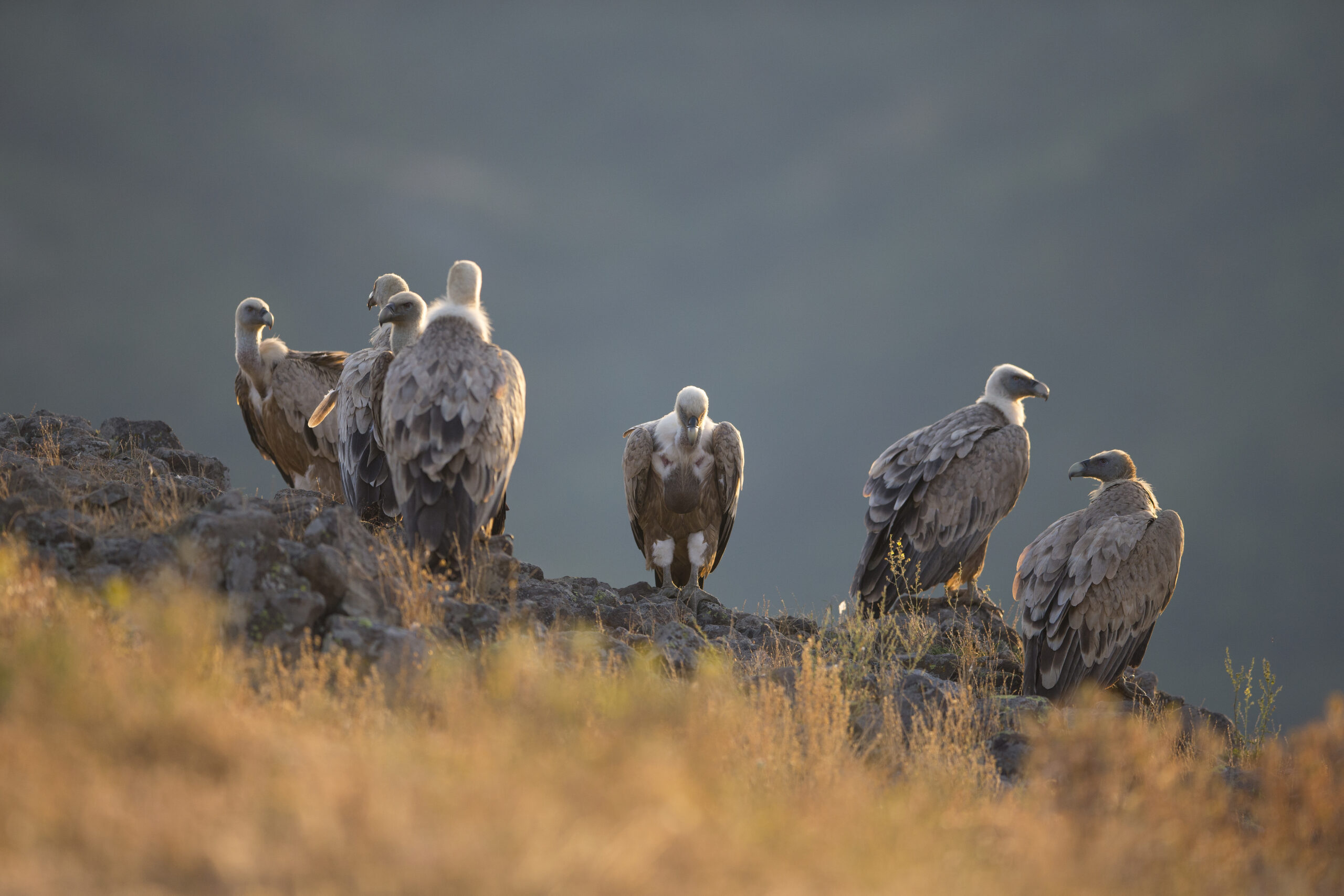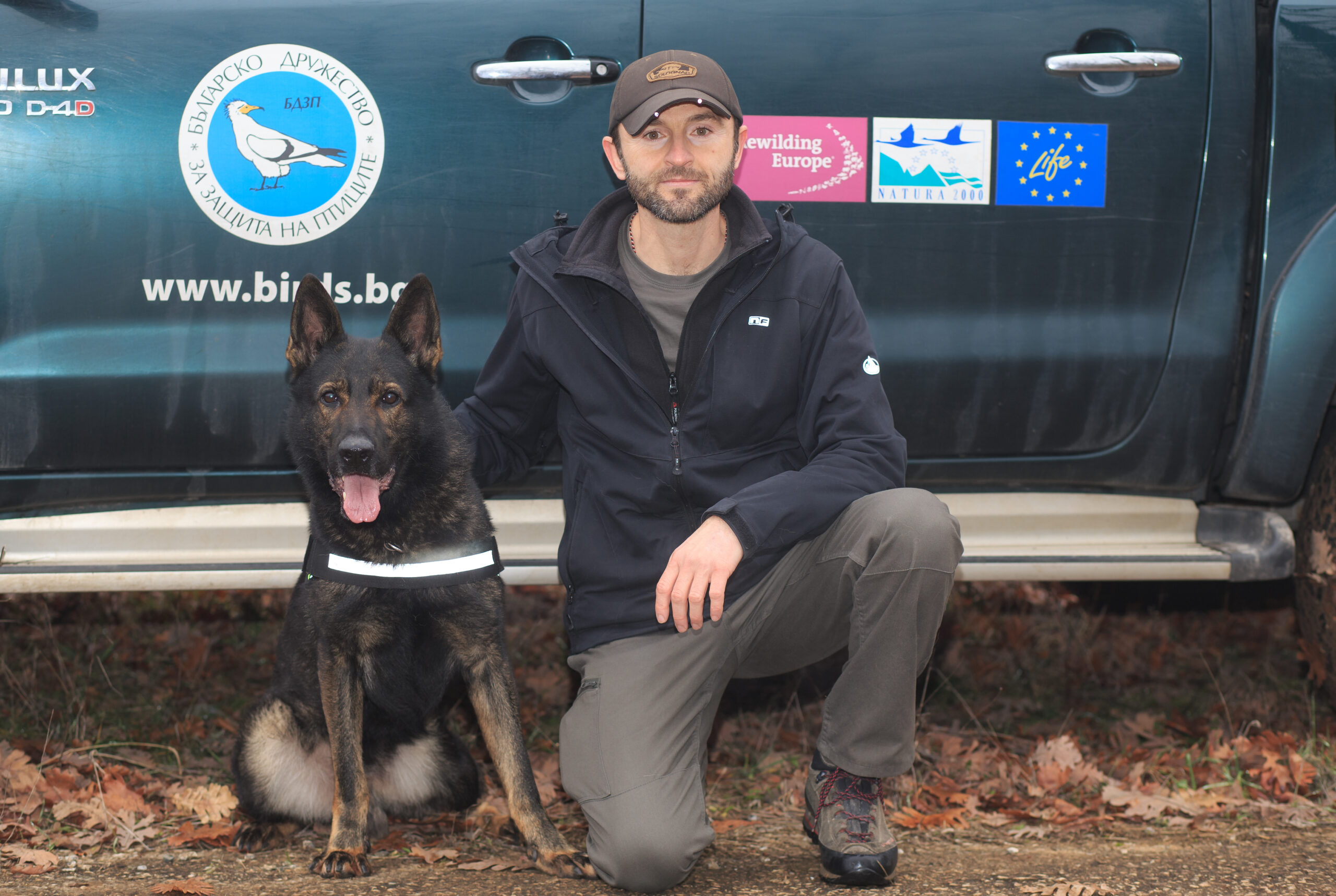Ιncreasing the Griffon Vulture population in the Eastern Rhodopes, restoring the red and fallow deer in the region and creating the first anti-poison dog unit team — these are just some of the results of LIFE-RE Vultures. Over the last five years, this project successfully implemented various conservation actions to conserve Cinereous and Griffon Vultures in the Rhodopes.

The comeback of the Griffon Vulture
The Eastern Rhodopes is the only place in Bulgaria where an indigenous Griffon Vulture population still exists. Over the past few years, the project team has been seeing a positive and stable population trend. Within the project, 308 Griffon Vultures hatched in the Bulgarian part of the Rhodope Mountains thanks to long-term efforts. Compared to 2016, where 81 pairs were registered, today there are 111. Furthermore, according to the censuses carried out annually in roosting areas, the data show an increase in the number of individuals — from 184 in 2016 to 245 Griffon Vultures in 2020.
Keeping track
Another important part of looking after Griffon Vultures and Cinereous Vultures is by tracking them with GPS transmitters. This allows conservationists to identify and mitigate the main threats they face, as GPS data provides great insight into their migrations, feeding habits, and more aspects of their lives. That is why the project team installed GPS transmitters on 27 Cinereous Vultures and 33 Griffon Vultures in Bulgaria and Greece.
This action revealed that young Griffon Vultures travel an average of 3,600 km during their migration! They follow routes through Turkey, Syria, Lebanon, Jordan and Israel to reach their winter destinations. They spend winter in large areas of Saudi Arabia, Yemen and Israel. One individual even spent the winter months in Sudan and South Sudan, which was the first record of the species in the area.
As previously mentioned, these transmitters revealed threats. In this case, with the help of GPS technology, the project registered 22 deaths of Griffon Vultures and another 10 cases of Cinereous Vultures. The main reason behind this mortality for both species is poison baits use, followed by other threats such as electrocution and collision.
Restoring th e red deer and fallow deer populations
e red deer and fallow deer populations
Providing safe food for vultures
In addition to increasing the natural food sources of vultures through releasing deer, the project established several vulture feeding sites, like the five in the Kompsatos Valley, where the livestock breeders can leave their dead animals. According to European Law, livestock breeders in Kompsatos have to bury the animals, something difficult for them because of the rocky ground. Another option would be for the animal by-products service to pick up the carcasses, which are again challenging as the area is remote and far away from the flatlands. With this initiative, the livestock breeders are operating within the boundaries of the law by leaving their dead animals in spots designated by the local services. The vultures also benefit since they can find a safe and accessible source of food.
Establishing the first anti-poison dog unit in Bulgaria

Among other steps, the project created the first anti-poison dog unit in the country to detect and remove poisons from nature, while supporting police investigations relating to wildlife poisoning. Over four years, the team conducted 153 searches and patrols. Most of the patrols were on the territory of the Eastern Rhodopes, as this is the main area of the vulture populations in Bulgaria. 310 potential threats were identified, 40 of which were illegally poisoned animals, 7 carcasses and 10 poisonous baits. The human and dog team found a total of 11 poisoned animal species.
Vultures are almost one-fifth of the victims found. In all these cases, the birds were unintentional victims. The main reasons for the use of poison baits are human-predator and human-human conflicts. Wolves and domestic dogs are the most common victims and account for one-fifth of all poisoned animals.
Starting in 2016, the five-year LIFE RE-Vultures project was developed by Rewilding Europe, in collaboration with the Rewilding Rhodopes Foundation the Bulgarian Society for the Protection of Birds, WWF Greece, the Hellenic Ornithological Society and us here at the Vulture Conservation Foundation.